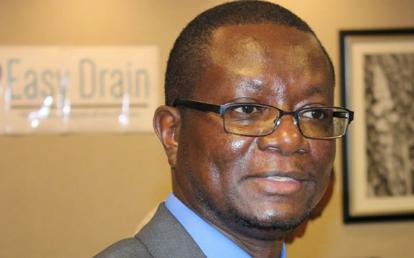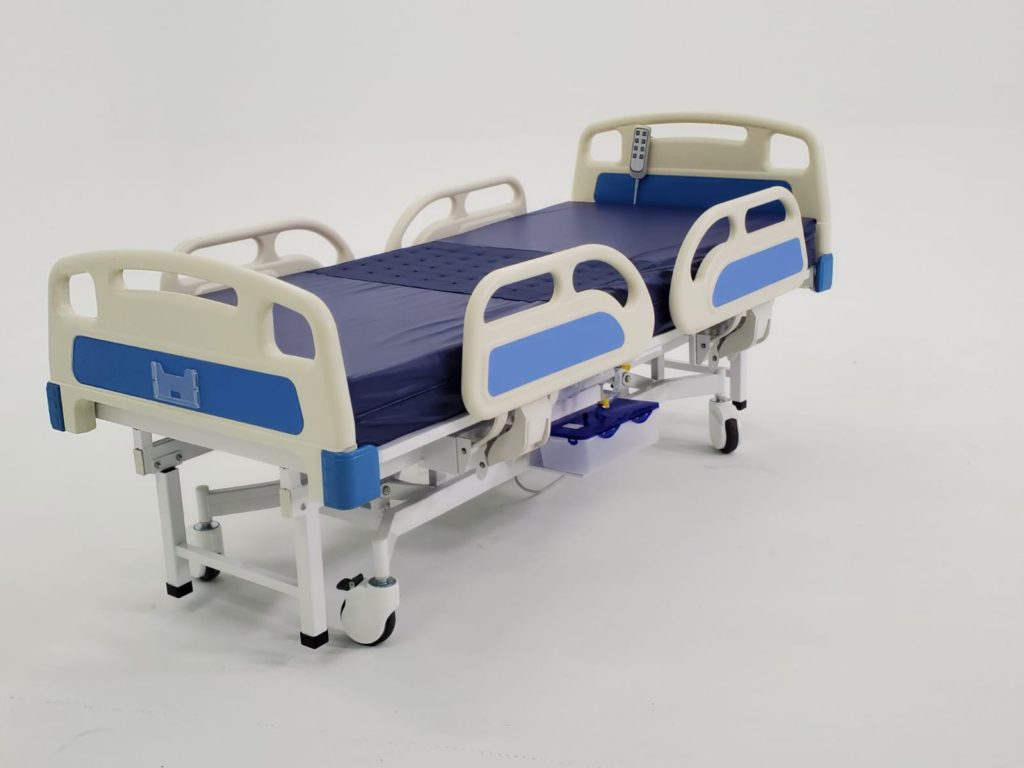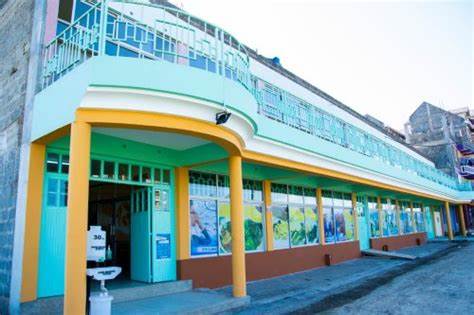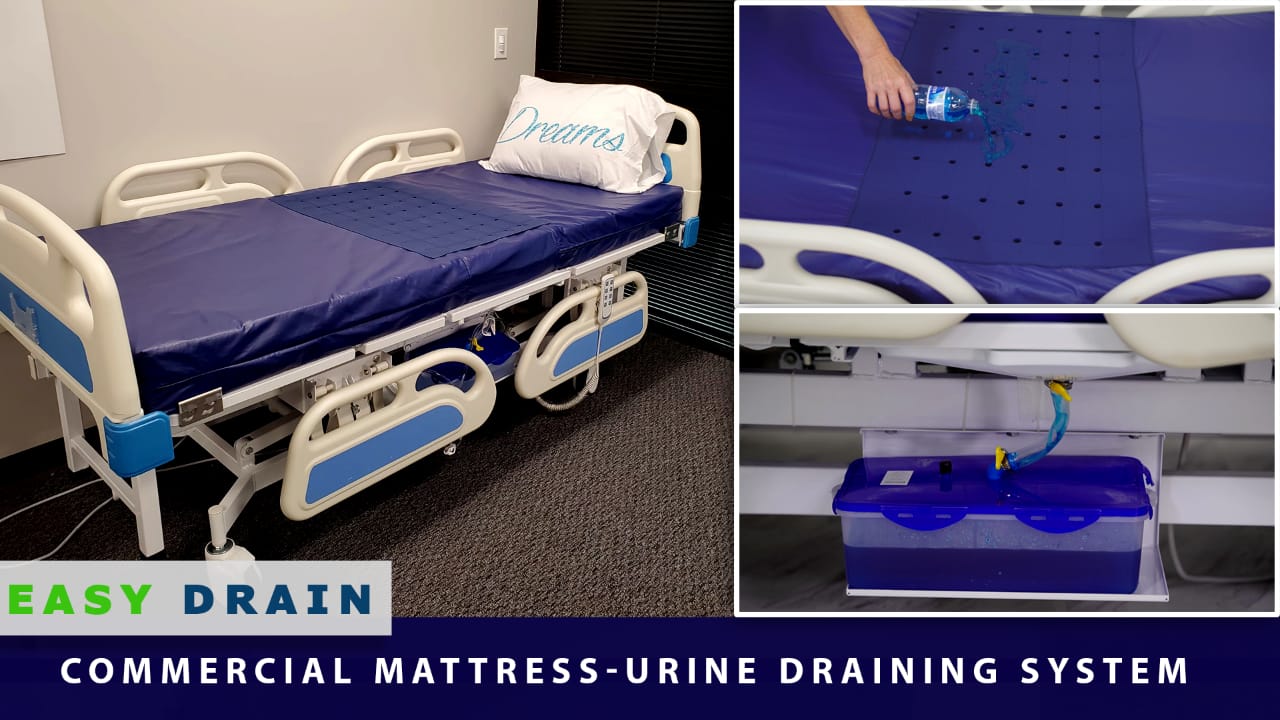- Ezra says that he reached out to over 300 companies but did not get the kind of support he anticipated for
- A request of 250,000 dollars from a company in Atlanta, Georgia was outrageous to him, and he almost thought that the idea was not meant to be
By Mical Imbukwa
Populations around the world are ailing and living longer than in previous decades. This demographic transition is placing new demands on societies to provide comprehensive systems for long-term care at home, in communities or in institutions.
In sub-Saharan Africa according to World Health Organization, 46 million older people live in the region and this number is expected to more than triple to (165 million) by 2050. A significant proportion of these people will require long-term care at some point in their lives.
 Ezra Nyankira, inventor, founder and president Easy Drain Care Products has been in the healthcare industry since 1991, when he left Kisii Kenya for the United States of America and has observed various trends that sparked in him a desire to better the situation for incontinence cases through the invention of the EasyDrain bed.
Ezra Nyankira, inventor, founder and president Easy Drain Care Products has been in the healthcare industry since 1991, when he left Kisii Kenya for the United States of America and has observed various trends that sparked in him a desire to better the situation for incontinence cases through the invention of the EasyDrain bed.
“I have been in the industry for long and I have seen drastic change especially here in the US and I believe back in Africa too. The thing we see is that there are more people getting sick, more getting older and frail, but we don’t have a large number of caregivers coming into the market,” he says
According to Nyankira, because there are not enough caregivers, some patients lay in their excretion longer and as a result of that, they develop skin breakouts which turn into wounds and the situation becomes worse when the wounds are infected with waste, for they become septic and this is life threatening.
So what actually inspired Ezra Nyankira to invent the EasyDrain bed?

“After several years of being in the healthcare industry working as a nursing assistant, I started to observe that it was indeed hard work taking care of people and I always wished there were better ways, but that is as far as it went,” he says.
When he eventually became a nurse, working in the community, he took care of a lot of people, in their homes, sometimes in the hospital or in nursing homes. The idea came about when he was taking care of this particular couple, where the wife was bedridden.
The man was able to get around but could not really take care of his wife because he was too old and frail. At this particular point, Ezra was working for a home health company as a wound care nurse.
“I noticed that, every time I came, changed the lady, did the dressing, and put her in a diaper because she was incontinent, whenever I came back, she was still in the same diaper I left her in the previous day. That’s about 24 hours and her skin was being eaten up by urine,” Nyankira laments
He thought; what if there was a mattress which could let the urine flow through, leaving the patient dry? After that, he started looking all over the internet and medical stores to see whether there was something close to that which he envisioned but he did not find any and so he decided to create one.
“So I bought some mattress in a store and made some holes in it, put some plastic bag over it and poured water on it. I did this at home to see whether it could work. The concept was very clear but the challenge was how to make the mattress waterproof and actually reliable so that someone could sleep on it and use it. Unfortunately, I could not figure out how” the inventor says.
His efforts to reach out to companies for actualization failed and due to life commitments, he dropped the idea. At this particular time he was in Minneapolis Minnesota and had the concept written down.
He later moved to Dallas Texas and took up another job with a different agency but still in the position of a wound care nurse. Here as he says, the problem was even bigger than what he faced in Minnesota.
“I found people with more critical wounds and this took me back to the project I had started working on earlier. At this point, I pulled out my old writings about the product and contacted a few firms,” he states
The product was designed and patented and the journey to find companies that would develop it into a real product began. Ezra says that he reached out to over 300 companies but did not get the kind of support he anticipated for. A request of 250,000 dollars from a company in Atlanta, Georgia was outrageous to him, and he almost thought that the idea was not meant to be.
Light presented itself through one gentleman in Cincinnati Ohio, who advised him to try China where he could probably find a company that would help him develop the product at reasonable rates.
“He linked me up with a couple of companies in China and I remember us making calls to seven companies together. We found two companies which could develop the product as we needed. We agreed and they worked on the bed prototypes and I liked what I saw,” Nyankira states
At this point Nyankira states that he was over the moon with joy for it had been proven that the concept was viable and he was getting closer to actualizing his dream. He however had to involve people along the way for the money was out of his range even with the Chinese solution.
“The first prototypes were very flimsy and they didn’t perform as well as we expected, but we have done substantial improvements and we now have a product which people are using and it is helping solve a problem which is getting bigger by the day. We hope that our product is going to bring relief to those who are going to use it,” he says
Ezra and team have been able to produce 100 units, several of which are in use in different settings in the United States of America, and a few in Arise Hospital based in Ruiru Kenya.

According to him, Arise Hospital is the first facility to use the product in Africa, and the hope is that, in a couple of months, several units will be in hospitals around Kenya, East Africa and eventually, all over Africa.
“We have so far gotten great reviews. People like the product and we are seeing the momentum that actually this is a product that they have been waiting for only that it wasn’t available,” he delightfully says
In the next 10 years, Nyankira hopes that Easy Drain Care Products will be a major player in the healthcare industry, as far as equipment in line with incontinence are concerned, and hopefully bring some relief and help to those who need it most.
“So hopefully, with our products, as we come to market and people get to know who we are and the problem we are solving, we are imagining and we are not saying it’s going to be like that, but we are imagining that in the near future, most companies whether big or small, will have to adopt to the technology we have brought to the market for healthcare equipment,” he notes
To young innovators he says that, looking at people in general, he knows that young people have innovative ideas but they are held back by people who think that the ideas they have are stupid. They should focus on providing solutions to problems and give a deaf ear to naysayers.
“Why I say that is when I started this journey, I talked to a lot of people and some of them laughed at me noting that I was so sick. How could I be thinking of something that female nurses should be thinking about? When you see a problem, and you have an idea to solve it, go for it! It could help humanity.” Nyankira Concludes

